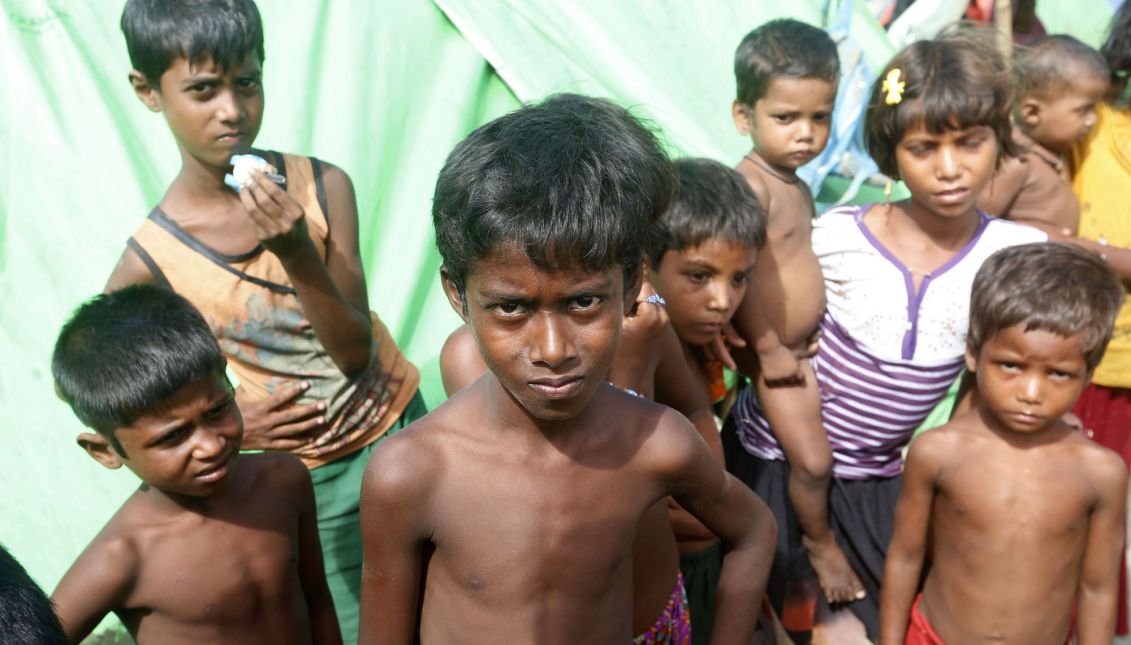
Mounting evidence of genocide of Rohingyas in Myanmar, says rights group
A human rights organization reported Wednesday "mounting evidence" of genocide of the Rohingya Muslim minority in western Myanmar's Rakhine State.
Fortify Rights documented "widespread and systematic attacks on Rohingya civilians" in two army operations launched after the armed attacks by Rohingya insurgents in October 2016 and August 2017.
According to the witnesses in the report, "Myanmar Army soldiers and civilian perpetrators slit throats; burned victims alive, including infants and children; beat civilians to death; raped and gang raped women and children. State security forces opened fire on men, women, and children at close range and at a distance and from land and helicopters."
"These crimes thrive on impunity and inaction," Matthew Smith, Chief Executive Officer of Fortify Rights, said in a statement.
The Secretary of State of the United States on Wednesday is scheduled to visit Myanmar to meet with the country's de facto leader Aung San Suu Kyi to discuss the Rohingya crisis.
Rex Tillerson is slated to arrive in Naypyidaw to meet with members of the Myanmar government and the armed forces to propose actions and address the humanitarian crisis in the State of Rakhine and to offer US support in the democratic transition of the Asian country.
The top US diplomat will travel from Manila, where the summit of the Association of Southeast Asian Nations (ASEAN) culminated on Tuesday.
In a meeting with Aung San Suu Kyi in the Philippine capital, Tillerson had raised the need to end violence and find a peaceful solution to the conflict.
"(Tillerson) express concerns over the violence and insecurity affecting the Rohingya and other local populations and discuss ways to help (Myanmar) end the crisis and chart a productive way forward," a State Department spokesperson told reporters in Manila on Tuesday.
In Manila, Suu Kyi also met with United Nations Secretary-General Antonio Guterres, who demanded a guaranteed access of humanitarian aid in Rakhine and the safe and voluntary return of refugees who have fled to Bangladesh since the conflict broke out on Aug. 25.
More than 600,000 people have fled to the neighboring Bangladesh after the army launched an offensive in the north of the western Rakhine State in response to the attacks by a group of Rohingya insurgents on security posts in late August.
The Myanmar army denied abuses against the Rohingyas, including murders and rapes, during its operations in Rakhine, despite the UN High Commissioner for Human Rights terming the situation "ethnic cleansing."
In Naypyidaw, Tillerson will also meet with the head of the armed forces, Min Aung Hlaing.
CONTENIDO RELACIONADO
The US lifted sanctions against Myanmar after the last military junta dissolved and transferred the power to a civilian government, which was made up of former generals who initiated a process of democratic reforms in 2011.
Suu Kyi took up the reins of the government in 2016 after her party National League for Democracy won a landslide victory, the first free elections in the country after half a century of military regime.
Measures proposed in the report to the international community to put an end to the violence include "sanctions on the individuals responsible for crimes in Rakhine State, instituting an arms embargo on Myanmar, and referring the situation to the International Criminal Court."
"Condemnations aren't enough. Without urgent international action towards accountability, more mass killings are likely," Smith added.
The Myanmar army has denied committing abuses against the Rohingya during its campaign in Rakhine despite the United Nations High Commissioner for Human Rights Zeid Raad Al Hussein describing the situation as a "textbook example of ethnic cleansing."
The latest military offensive in Rakhine has led over 600,000 people to flee from Rakhine, where around one million Rohingyas lived before the crisis, and take refuge in camps in Bangladesh.
Another 120,000 Rohingyas have been living in camps for displaced people in Rakhine since the outbreak of sectarian violence in 2012 between the minority and the Buddhist majority in the state.
Myanmar denies citizenship to the Rohingyas - considering them illegal immigrants from Bangladesh - and imposes multiple restrictions on them including restrictions on their movement.










DEJE UN COMENTARIO:
¡Únete a la discusión! Deja un comentario.